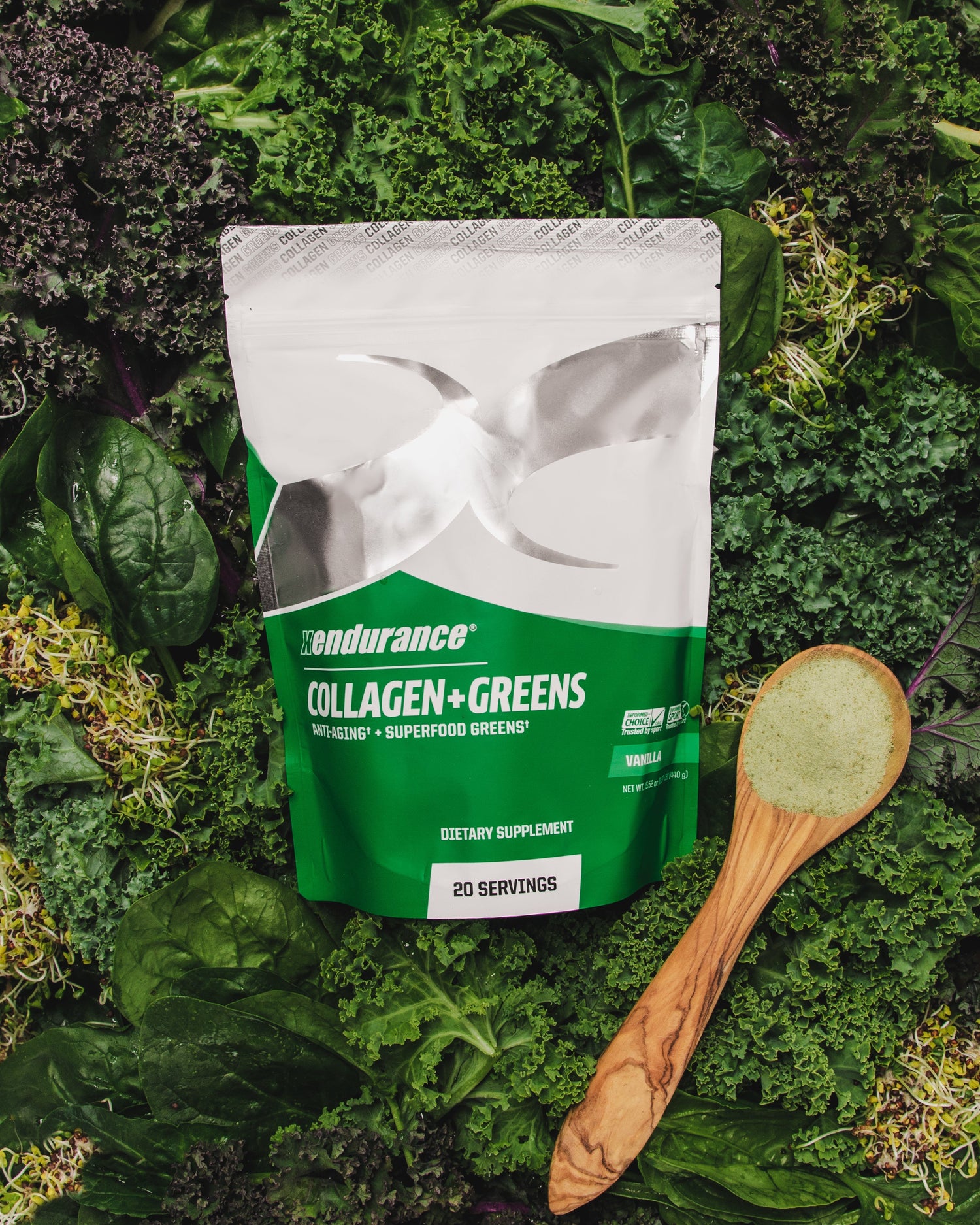A Harvard report mentioned that collagen is the most bountiful protein present in the body. Its function is responsible for producing connective tissues.
For this reason, it is crucial to find the best types of collagen to help boost your health and body performance.
Read the rest of the article if you want to know more about the functions of collagen in the body, including the best types of collagen for the skin and the most remarkable collagen benefits for women.
What Is Collagen?
It might be minuscule, but collagen plays a crucial role in the body. This tiny molecule is a tough, fibrous, and insoluble protein that fulfills essential functions for different body parts, including:
- skin
- bone
- blood vessels
- cartilage
- tendons
- connective tissues
If you have healthy levels of collagen, you can ensure that you will have the following:
- better joint health
- improved skin elasticity
- stronger cardiovascular system
- well-protected kidneys and other organs
What Are the Types of Collagen?
There are as many as 16 different types of collagen, but most studies focused on Type I, Type II, and Type III.
Type I
It is the most common type of collagen present in the body and is considered perfect for the skin. This protein is often located in the skin, ligaments, tendons, and bones.
Most people consume collagen type I supplements to strengthen the skin, nails, and hair. It is also known to help reduce the risk of osteoarthritis and scleroderma.
Because of its benefits for the skin, some reports claim that Type I collagen can be considered the fountain of youth.
However, Type I collagen levels start declining when you reach 25. When this happens, you will notice the appearance of fine lines, sagging skin, brittle nails, and thinning hair.
Type II
Collagen Type II is a natural body protein on the bone, cartilage, and other connective tissues.
According to studies, it may help the body manufacture chemicals that ward off swelling and pain. But more studies are necessary to prove this claim.
Supplements for Collagen Type II come from sources like chicken or cows. These are often recommended to help improve osteoarthritis or other muscle and joint pain forms.
Type III
Type III collagen lies primarily on your muscles, intestines, uterus, and blood vessels.
This form of collagen is usually used with Collagen Type I to improve gut health and enhance the skin’s hydration and elasticity.
Also, studies claimed that Type III collagen is necessary for Type I collagen fibrillogenesis and the development of the normal cardiovascular condition.
You may consume supplements of all these types of collagen, like collagen peptides, to ensure your body’s steady supply of this vital protein.

For this reason, it is crucial to find the best types of collagen, such as collagen peptides, to help boost your health and body performance.
Read the rest of the article if you want to know more about the functions of collagen in the body, including the best types of collagen for skin and the most remarkable collagen benefits for women.
7 Promising Collagen Peptides Benefits for the Body
You will enjoy the following perks by ensuring adequate collagen production in the body.
1. Maintains Healthy Glowing Skin
The reduced production of collagen may cause the skin to sag and promote premature signs of aging. It also causes drier skin, which could lead to skin damage and other irritation.
You may address the declining collagen production by investing in collagen peptide supplements like XND’s. According to a recent study, these supplements help reduce the appearance of wrinkles and improve skin hydration, showcasing the collagen powder benefits for skin health.
2. Supports Healthy Cartilage for Soft Joints
Collagen peptides can help promote adequate collagen production in the cartilage and other connective tissues. Thus, it can help reduce the risk of osteoarthritis in the joints.
According to a previous study, collagen peptides may help you deal with osteoarthritis and osteoporosis. It may also enhance bone mineral density, alleviate pain, and protect the cartilage from damage.
3. Helps Reduce the Risk of Atherosclerosis
The plaque buildup on the inner wall of the artery is called atherosclerosis. This condition usually has no symptoms unless the plaque ruptures. When that happens, you may be at risk of more severe ailments.
Collagen supplements may help lessen the possibility of atherosclerosis. If your body has more collagen, the plaque buildup becomes less vulnerable to ruptures.
It may also help in preventing the formation of plaque, based on a recent study.
4. Promotes Gut Health
Recent research discovered a connection between decreased collagen levels and people with inflammatory digestive issues like irritable bowel disease (IBD).
According to the research, an imbalance is seen in the formation and breakdown of essential collagen fibers among IBD patients, triggering inflammation. Therefore, supplementing with oral collagen could help improve the gut condition.
5. Strengthens Nails
Another study suggested that consuming collagen peptides as part of your diet may help your nails grow faster and more robust.
According to the research, bioactive collagen peptides led to a 12% nail growth rate increase. It also reduced the risk of broken nails by 42%.
The study also discovered that 64% of the participants experienced improvements in their brittle nails, demonstrating collagen supplements benefits for nail health.
6. Keeps the Bones Healthy
As people age, the bone density mineral wane. This condition is more noticeable after menopause, according to a report from the National Osteoporosis Foundation.
Based on a clinical trial of 102 post-menopausal women, those who consumed collagen peptide supplements for a year improved their bone mineral density more than those who belonged to the control group. It could be due to the bone formation triggered by collagen while reducing the speed of bone loss.
7. Improves Muscles
If you want to develop more muscles, collagen supplements can help you achieve your body goals.
According to a 2015 study, older male adults who took collagen supplements and joined a resistance training program thrice a week for three months boosted their fat-free body mass and improved their muscle strength. It also helped reduce their fat mass.
Another study also showed increased muscle mass in younger active men after 12 weeks of collagen supplements and resistance training.
Frequently Asked Questions
How to Get Collagen Naturally?
You can include collagen in your diet by consuming collagen-rich foods or using collagen protein powder. Some ideal examples include bone broth, chicken, fish and shellfish, garlic, egg whites, citrus fruits, and berries.
How Old Should You Start Taking Collagen Supplements?
You can begin consuming collagen supplements at any time. But if you want to avoid the aging effects and support collagen for hair growth, you may start taking this supplement as early as 20 years old.
Start Building Your Collagen Supply Today
A decrease in your body’s collagen level can bring several problems as you age. So please don’t wait until you feel all the symptoms before it becomes too late. Look for a reliable collagen supplement to enjoy better health until your advanced years.









Leave a comment
This site is protected by hCaptcha and the hCaptcha Privacy Policy and Terms of Service apply.